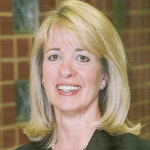
by Cheri Shannon
In an effort to transform our public school system, charter schools have provided a breath of fresh air. Free, open-enrollment public schools, charters were established in Florida in 1996 to provide more high-quality educational options for families. With the flexibility to innovate with curriculum, classroom time, technology and much more, charter schools are held to greater standards of accountability for student achievement. This means that charter schools that are effectively improving learning, as most in Florida are, should be celebrated as well as replicated so more students benefit.
However, if a charter school is not living up to its mission of providing a high-quality education for its students, then it should no longer be in operation. All public schools, whether a charter, magnet or district school, must ensure that every child has access to a strong educational program that meets his or her needs.
Since the first charter school opened 20 years ago in Minneapolis, we have learned that, occasionally, opening the door to let in fresh air brings with it some flies. Despite the strong performance of charter schools, there are a few underperformers that fall short of their mission to provide a high-quality education for all students. That is why local school boards and the Department of Education have moved to close at least three charter schools this year – actions we in the larger charter school movement support. The most recent action includes the decision to close Life Force Arts and Technology charter in Pinellas County, which had questionable curriculum and management, and to no one’s surprise, low student achievement. When charter schools like these do not meet their goals, they should no longer have the privilege of serving students and should close.
As we continue to hold charter schools accountable, as we should all public schools, we must not lose sight of the fact that parents of nearly 180,000 students actively chose to send their children there.
In the case of some poor performers, it’s perhaps because parents feel their child is safer in a small environment the school may provide, or because the nearby district schools are worse off. But those factors alone are not enough. Charter schools must be able to demonstrate the ability to improve learning, and when bad ones close, we should respect parents’ choices and work to ensure good schools will take their place. Parents will ultimately make good choices – they simply need access to more of them.
Undoubtedly, charter schools in Florida are opening up doors of opportunity for thousands. Charters currently account for 10 percent of all public schools, with 179,000 students enrolled in 520 schools in urban and suburban communities across the state. According to a 2012 report from the Florida Department of Education, students in charter schools excel across the board when compared to their traditional district peers. Charter schools that are serving students well are flourishing – expanding to meet community demand, developing more innovative educational practices and attracting passionate teachers.
Families in Central Florida enroll their students in Legacy High Charter School in Orange County because it graduates 100 percent of students, the highest high school graduation rate in the region. In Miami, the International Studies Charter High School, which serves a higher minority population than the comparative Miami-Dade County Public Schools, was recently ranked in the top 100 high schools in the country according to Newsweek. As Galileo School for Gifted Learning in Seminole wraps up its first year, third graders are already among the highest-performing students in the state in both math and reading, according to FCAT scores.
There are hundreds of charter schools like Legacy, International Studies and Galileo across our state. So effective have many of Florida’s charters been, in fact, that families are demanding more charter schools. In addition to the nearly 60 new charter schools that opened in 2011, more than 250 community groups have submitted applications to open 348 new schools in coming years. This signals that charters are and will continue to be an asset to hundreds of thousands of families in Florida.
As the charter school movement in Florida expands, we must make sure they all rise to meet their mission. This includes holding charter schools accountable for student achievement. Only with this accountability can we ensure that new charter schools will join the hundreds already in existence to provide students with a high-quality education. We must, for the sake of our students and families, keep the fresh air coming.
Cheri Shannon, who has served as a school district administrator, principal and teacher and charter school superintendent, is president and CEO of the Florida Charter School Alliance www.flcharteralliance.org.
Coming up …
Tomorrow: The future of education is about serving students “where they are and not where we want them to be.”


